Discover Chinese Literature Podcast
Chinese Literature Podcast

237 Episodes
Reverse
Today, I get to speak with Professor Emily Mokros about her fascinating book, The Peking Gazette in Late Imperial China - State News and Political Authority. The book is about a media outlet in the Qing Dynasty that published discussions that the emperor held with his bureaucrats.
This episode, the podcast takes a look at a poem Mao Zedong wrote in February 1936, after he and his party had undergone the near-death experience of the Long March. Yet still, Mao has the gumption to imply in the poem that he would be the greatest ruler China had ever seen. My Translation of the Poem: Spring in a Soaked Garden - Snow The north country scenery, frozen over for a thousand miles, snow floating for ten thousand miles. I look inside and outside the Great Wall of China, all that remains is boundlessness. Up and down the Yellow River, it has suddenly lost its surging vigor. The mountains dance like silver snakes, the plains gallop like white elephants, I want to compete with Heaven and see which of us is taller. I must wait for a clear day, and look at the snowy landscape wrapped in red and white, it’s really bewitching. The rivers and mountains, this land, is so pretty, it has brought out countless heroes to compete and serve the nation. Pity Qin Shihuang, the first Chinese emperor, and Han Wudi, the greatest Han emperor, their writing ability ain’t all that good. Tang Taizong, the greatest Tang emperor, and Song Taizu, the greatest Song emperor, they kinda lack style. Those northern barbarian rulers, like Genghis Khan, all they knew how to do was shoot arrows at big eagles. Those guys are all dead, if you want to count the true badasses look to today. Original Poem: 沁园春·雪 北国风光,千里冰封,万里雪飘。望长城内外,惟余莽莽;大河上下,顿失滔滔。山舞银蛇,原驰蜡象,欲与天公试比高。须晴日,看红装素裹,分外妖娆。 江山如此多娇,引无数英雄竞折腰。惜秦皇汉武,略输文采;唐宗宋祖,稍逊风骚。一代天骄,成吉思汗,只识弯弓射大雕。俱往矣,数风流人物,还看今朝。
This episode is a special one. The podcast has a conversation with Fox Butterfield, the first correspondent for the New York Times after 1949. Mr. Butterfield set up the Beijing Bureau for the New York Times in 1979 and was the bureau chief from 1979 to 1981. Mr. Butterfield started studying Chinese in 1958, and was a student of John Fairbank. In this episode, I got the priveldge of interviewing Mr. Butterfield at his home. We talked about his experience with John Fairbank, his friendship with Senators John McCain and Joe Biden, his work on the Pentagon Papers and many other topics.
In today's episode, we look at a work that tackles the controversial topics of aborition and the One-Child Policy. Today's story, by Nobel-Prize Laureate Mo Yan, watches a father/government official after his wife becomes pregnant with a son. Their first child, a daughter, is not good enough for the official's dad, he wants a son. But the official is tasked with enforcing the One-Child Policy, China's draconian rule that each family was only allowed to have one child. We watch as the official forces his wife to get an abortion while explosions happen all around them.
"Folding Beijing" is one of the most talked-about science fiction stories to come out of China since Liu Cixin, Hao Jingfang's story is about a Beijing divided into three parts. First Space is for the rich, Second Space is for the middle class and Third Space is for the poor, who clean up after First and Second Space Beijing. The three spaces never exist simultaneously, but rather when First Space is open, Second and Third Space are folded up and put away. A man, struggling to put his daughter through school, agrees to take up an illegal job to smuggle a message from Second to First Space. This is a story that is fascinating because it is all about class, even though China has been run by the CCP for almost a century. Join the podcast as we get folded into Third Space and find ourselves in a new world.
Today, we are looking at a story involving Su Dongpo, who was the butt of the greatest fart joke in all of Chinese history. The story involves Su Dongpo, the Song Dynasty's greatest poet, and a Zen Buddhist named Buddha's Stamp.
Lock up your daughters and watch your wallet. In this episode, we are going to take a look at stories from the late Ming's most famous grift manual, a book by Zhang Yingyu. For this episode, the translators, Bruce Rusk and Christopher Rea have kindly agreed to come on talk about this text without stealing anything. I highly recommend this book to anyone looking to make counterfeit silver, run a gang of that blinds and amputates children or just to anyone looking for some damn good stories. Purchase the book here, at Columbia University Press.
Today, we have an interview Joel Bigman, the author of The Second Journey. The Second Journey is a continuation novel of Journey to the West (西遊記). In this journey to the West, Tang monk travels ever farther to the west, all the way to modern day Israel. Bigman has written his novel with some of the same characters that you know and love, Tang Monk, Monkey and Pigsy, but he also has some new characters like Bear (the Second Samson). This new team travels through the Holy Lands, encountering Jewish monsters and some other characters. If you are interested in buying his great novel, check out these book sellers: https://www.amazon.com/Second-Journey-Joel-Bigman/dp/9888843702 The Second Journey eBook by Joel Bigman - EPUB | Rakuten Kobo United States The Second Journey by Joel Bigman, Paperback | Barnes & Noble®
It is that time of year again, the time when the Chinese Literature Podcast takes stock of the year and what has happened. In this podcast, Lee talks about his book and also about teaching Chinese Literature at the University of Oregon.
Today, we have an exciting and disturbing episode about Taiwan and prostitution. This is Number 6 in my series on Taiwanese literature, and the second episode on Huang Chunming, Taiwan's most famous nativist author. Last episode, the podcast looked at the story, "Drowning of an Old Cat." This week we look at a story from that same English translation. "Sayonara, Zaijian" is a story about a Taiwanese man forced to pimp out his own countrywomen to the Japanese. It is fun, it is disturbing, it is triggering. In other words, it is a great work of literature.
Today, we take a look at Huang Chunming, one of the most important writers in Taiwan's nativist movement. He is an author who developed this sense of a Taiwanese identity in his work. Also, don't worry, no cats die in this story.
Today, Lee is talking with Professor Daniel Bell, most recently the author of Dean of Shandong, but also the author of the famous China Model. Professor Bell and Lee chat about his book and about his wider experience of Chinese culture and philosophy while serving as the first foreign dean of a university in the PRC.
Today, the podcast does something different. In this episode, we are looking at a film. And not just any film. It is perhaps the greatest film ever made. Yi Yi or A One and a Two is the magmum opus of Edward Yang, the Taiwanese filmmaker. We are going to explore the symbolism of balloons, sticks and condems in this amazing film.
The greatest of Taiwan's modernists, Bai Xianyong's short story, "Winter Nights," is a tale about history and how little we are able to change things. These revolutionaries of Beijing's hot summer of 1919 reconvene in Taipei in the 1960's having lost their cause and their country. Lee taught this story about protestors during the height of the pro-Palestinian protests in 2024, and he describes how his students reacted to the story.
This episode is different. I am first explaining the issue of Taiwanese comfort women, and then letting yall hear a speech that I gave to a group in Vienna on the only comfort women museum in Taiwan. Stick around for some interesting history and a discussion of museums.
This week's podcast is on one of the earliest documents we have in Taiwanese history, a 1697 journey by Yu Yonghe into the wilds of Taiwan's north, where he mined sulfur amongst the barbarians. Yu gets off on traveling, and this journey is deep into the heart of Taiwan. In this podcast, I discuss the history of Taiwan along with questions of race and racism in Chinese thought.
Love and amplifers is the topic of Ge Fei's novella "The Invisibility Cloak." Ge Fei uses a discussion of stereo systems to try to articulate changes in value system in China in the late 20th century. Turn up the volume for this exploration of one of contemporary China's most acclaimed novelists.
Today, the podcast interviews one of contemporary Chinese literature's extraordinary translators. Nicky Harman translated, along with her partner in crime, Liu Jun, Jia Pingwa's recent novel The Sojourn Teashop. Nicky is well known in Chinese literature circles as a translator and promoter of Chinese literature to the broader public. The novel, Sojourn Teashop, is available here, published by an excellent UK-publisher focused on Chinese literature, Sinoist, which is at the forefront of translating and publishing the best of contemporary Chinese fiction.
In today's episode, the podcast is honored to have Ian Johnson, Pulitzer-prize winning journalist, author and commentator who has spent decades living in and writing about China. His most recent book is called Sparks. In it, he follows a handful of China's underground historians who resist the increasingly heavy-handed state by writing and researching events that the Chinese Communist Party would rather be forgotten.
Last episode, we discussed Jin Yong and his contributions to Kung Fu literature. This episode we take a look at his final work, the "Sword of the Yue Maiden." We encounter some ancient Chinese punks with swords and how their killing of a little girl's goat ends up percipitating their demise.
 United States
United States

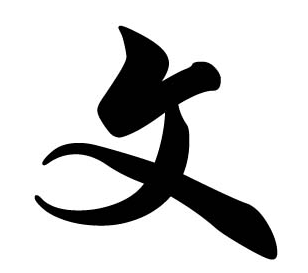
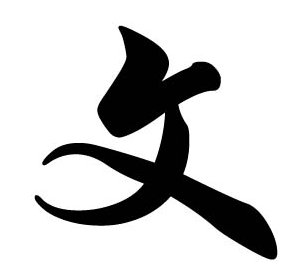
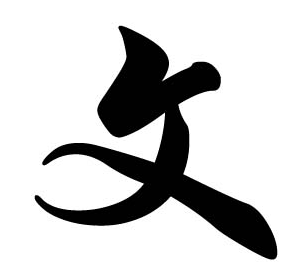
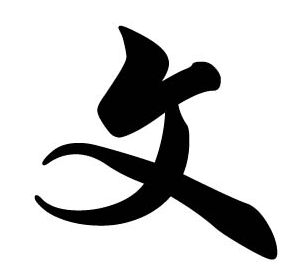
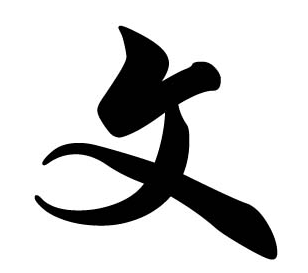
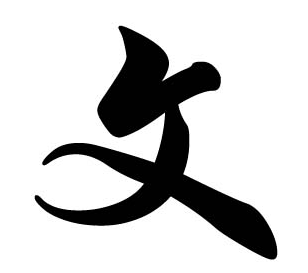















Love this podcast!
So glad I found this podcast! Thanks Rob & Lee for making Chinese literature accessible to those of us who can't yet read Mandarin. Question: would you consider doing an episode on 八大山人? Thanks for sharing your knowledge. ~Carina